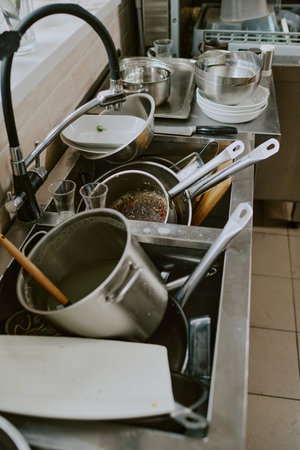Introduction: Embracing Five Elements Philosophy in the UK Home
The Five Elements philosophy, originating from Eastern traditions, explores the dynamic balance between Wood, Fire, Earth, Metal, and Water. Each element represents not only a natural force but also a set of qualities that influence our daily lives and environments. In recent years, British households have shown growing interest in integrating holistic approaches to well-being, making the Five Elements concept especially relevant. Bringing these principles into your UK kitchen isn’t just about aesthetics—it’s about creating a harmonious space that nurtures prosperity, health, and positive energy for everyone at home. By thoughtfully incorporating these elements, you can transform your kitchen into a balanced hub of nourishment and connection, blending Eastern wisdom with British practicality.
Understanding the Five Elements: Wood, Fire, Earth, Metal, and Water
The theory of the Five Elements—Wood, Fire, Earth, Metal, and Water—is rooted in ancient Chinese philosophy but has found practical resonance in contemporary UK homes. Each element embodies distinct qualities and associations that can be thoughtfully reflected in your kitchen’s design and daily use. Understanding these elements helps to cultivate an environment that supports prosperity and harmony within the uniquely British context.
| Element | Qualities | Symbolic Presence in a UK Kitchen |
|---|---|---|
| Wood | Growth, vitality, flexibility | Chopping boards, wooden utensils, fresh herbs on the windowsill |
| Fire | Warmth, energy, transformation | Cooker or hob, kettle for tea, red accents such as tea towels or toasters |
| Earth | Stability, nourishment, support | Ceramic dishes, terracotta pots, bread bins or traditional larder cupboards |
| Metal | Clarity, precision, efficiency | Stainless steel appliances, cutlery sets, metallic light fittings or fixtures |
| Water | Flow, adaptability, calmness | Sinks and taps, glassware, blue or black decorative elements like splashbacks or tiles |
In the context of a UK kitchen—where tradition meets modernity and space is often at a premium—the Five Elements can be subtly woven into your surroundings. For example, the classic British love for a well-brewed cup of tea blends both Fire (the boiling water) and Water (the drink itself), while an exposed brick wall (Earth) may sit alongside sleek chrome appliances (Metal). By recognising each element’s role and presence in your daily routines—from preparing meals to sharing family conversations—you lay a foundation for balance that goes beyond aesthetics. This approach not only honours cultural heritage but also fosters a kitchen environment where wellbeing and abundance can flourish.

3. Adapting the Elements to British Culinary Culture and Design
When seeking to balance the five elements in a UK kitchen, it’s essential to select materials, colours, and features that both represent these elements and feel at home in British culinary traditions. Below are practical examples and suggestions for incorporating each element in ways that complement classic and contemporary UK kitchens.
Wood – The Element of Growth and Vitality
Timber is a mainstay of British design. To invite wood energy, use oak or ash cabinetry, classic butcher-block worktops, or open shelving made from reclaimed timber. For a subtle touch, wooden utensils or even a Welsh dresser add warmth and tradition.
Fire – The Element of Energy and Transformation
The hearth has always been the heart of the British home. Celebrate fire with an Aga cooker or a bold red kettle as a feature on your hob. Copper pans displayed on hooks, or a set of vibrant tea towels in reds and oranges, bring this energy into daily life without overwhelming the room.
Earth – The Element of Stability and Nourishment
Terracotta pots for herbs, stone flooring (such as Yorkshire flagstones), or ceramic tiles evoke groundedness. Incorporate classic Cornishware ceramics or a rustic pottery fruit bowl on the table to reinforce this element while honouring local craftsmanship.
Metal – The Element of Clarity and Precision
Polished chrome taps, stainless steel appliances, or pewter handles lend sleekness synonymous with modern British kitchens. Vintage metal scales or a traditional toast rack can also introduce metallic accents while nodding to heritage.
Water – The Element of Flow and Abundance
A Belfast sink is both iconic and functional, representing water beautifully in a UK kitchen. Consider blue tiles as a splashback or glass-fronted cabinets to enhance fluidity. Even a simple jug of fresh water on the table symbolises this life-giving force.
By mindfully choosing items that have deep roots in British homes—whether vintage finds or modern interpretations—you can honour both the five elements and your own sense of place, creating a space that feels prosperous, harmonious, and unmistakably yours.
4. Seasonal Influences: Reflecting the British Climate and Local Produce
One of the most practical ways to harmonise the Five Elements in your UK kitchen is by embracing the local climate and adjusting according to the changing seasons. In the UK, each season brings its own character and an array of fresh produce, which aligns naturally with the cyclical nature of the Five Elements – Wood, Fire, Earth, Metal, and Water. By thoughtfully choosing ingredients and cooking methods that resonate with both seasonality and elemental energy, you foster prosperity and harmony within your household.
Adapting Ingredients to Seasons
The British weather is famously changeable, making it especially important to work with what’s available locally. Each season presents an opportunity to balance your kitchen’s elemental energies using native ingredients. For example, root vegetables in winter can strengthen Earth energy, while spring greens can invigorate Wood energy. Here’s a guide to matching seasonal UK produce with their corresponding elements:
| Season | Key Local Produce | Element Focus | Suggested Techniques |
|---|---|---|---|
| Spring | Asparagus, wild garlic, spinach | Wood (growth and renewal) | Light steaming, gentle stir-frying |
| Summer | Berries, tomatoes, courgettes | Fire (abundance and joy) | Grilling, quick sautéeing |
| Autumn | Pumpkin, apples, mushrooms | Metal (harvest and reflection) | Roasting, slow baking |
| Winter | Parsnips, leeks, cabbage | Earth & Water (nourishment & rest) | Braising, hearty soups/stews |
Culinary Techniques for Elemental Balance
Beyond ingredient selection, British culinary traditions offer many techniques suited to balancing elemental energies. For instance, roasting root vegetables in autumn not only celebrates local harvests but also grounds the home with Metal energy. In summer, grilling outdoors can amplify Fire energy while connecting you with nature.
Sourcing Locally for Prosperity and Harmony
Supporting local farmers’ markets or community-supported agriculture schemes helps strengthen community ties – an essential part of both prosperity and harmony in Feng Shui practice. Sourcing local produce ensures freshness and allows you to align your kitchen’s Five Elements with the rhythms of British land and weather.
Practical Tip:
Keep a seasonal produce calendar on your fridge or kitchen wall as a simple reminder to adapt your ingredients and cooking styles throughout the year. This small act keeps your space dynamic and energetically attuned to both nature and culture.
5. Everyday Rituals: Fostering Harmony and Prosperity Through British Habits
Integrating the five elements into your UK kitchen isn’t a one-off design choice—it’s a living practice, woven into daily and weekly rituals that nurture harmony and prosperity. Drawing inspiration from British customs and rhythms, you can create routines that subtly reinforce elemental balance and positive energy within your home.
Morning Teatime: Welcoming the Day with Earth and Fire
Start each morning with a cup of tea—a deeply-rooted British tradition. Boiling the kettle (fire) and grounding yourself with your favourite mug (earth) provides an intentional moment to set your intentions for the day. As you stir in milk or honey (water), open a window for fresh air (air), and let natural light flood the space (metal), you quietly activate all five elements before breakfast even begins.
Sunday Roast: Cultivating Community Energy
The classic Sunday roast is more than just a meal; it’s a weekly ritual that brings family together around hearty food. Roasting root vegetables (earth), using the oven’s heat (fire), basting meats with juices (water), sharing stories over the table (air), and serving on cherished crockery or silverware (metal) all symbolically balance the elements while reinforcing bonds that sustain prosperity.
Weekly Kitchen Refresh: Clearing Stagnant Energy
Set aside time each week to tidy up—another staple of British household care. Wipe down surfaces (water), compost food scraps (earth), light a scented candle or simmer herbs on the hob (fire), open doors for a cross breeze (air), and polish taps or handles until they shine (metal). This practical routine doesn’t just keep things clean; it refreshes energy, prevents stagnation, and encourages abundance.
Baking Together: Stirring Tradition Into Modern Life
Baking scones or bread as a family not only connects you to cherished recipes but also invites every element into play—mixing ingredients (earth and water), kneading dough by hand (physical connection—earth/metal), baking in the oven (fire), letting dough rise in warm air (air/fire), and sharing freshly baked treats over tea creates harmony through shared action.
Conscious Shopping: Supporting Local Prosperity
When planning meals, prioritise local, seasonal produce from markets or farm shops—a growing trend across the UK. Supporting local farmers strengthens community ties (earth), reduces environmental impact (air/water/metal), and ensures fresher, more vibrant meals. This habit aligns household prosperity with that of your neighbourhood, amplifying positive energy beyond your own walls.
Incorporating these everyday habits into your kitchen routine honours both elemental philosophy and British heritage. By intentionally bringing awareness to how you cook, gather, clean, and source food, you foster an environment where harmony and prosperity naturally thrive—turning simple acts into meaningful rituals that benefit everyone under your roof.
6. Troubleshooting Imbalances: Recognising and Addressing Common Issues
Even with the best intentions, your UK kitchen may occasionally fall out of elemental harmony. Recognising these imbalances early can help restore prosperity and comfort for everyone at home. Here’s how to spot and address the most common issues:
Spotting the Signs of Imbalance
Typical signs of imbalance might include persistent clutter, constant draughts, damp corners, poor lighting, or a general feeling that the kitchen is “off” or uncomfortable. For example, if you find that meals are frequently burnt or undercooked, or that family members avoid spending time in the kitchen, these could indicate underlying elemental disharmony.
Practical Solutions for Common Problems
Excess Water Element
If your kitchen feels damp, cold or uninspiring—classic symptoms in many UK homes—this often points to an overabundance of Water energy. Try introducing more warmth through improved lighting (think warm LED bulbs), cheerful accessories, or even a splash of red décor to strengthen the Fire element.
Dominant Fire Element
Conversely, if your kitchen feels too hot, chaotic or aggressive—perhaps due to an overactive cooker or excessive use of red accents—calm things down by adding more Earthy tones (like stoneware pots or beige textiles) and a few potted herbs for Wood energy balance.
Lack of Wood Element
A kitchen devoid of natural materials or greenery can feel lifeless. A simple fix is placing locally-sourced wooden utensils, chopping boards, or a small herb garden on your windowsill—an easy win for both aesthetics and harmony.
Too Much Metal Element
If your space is filled with stainless steel appliances and hard edges but feels sterile or unwelcoming, soften it up with textiles like tea towels in muted British hues or add ceramic mugs made by local artisans to bring in some much-needed Earth energy.
Earth Imbalance
If things feel stagnant, heavy, or cluttered—a common challenge in compact UK kitchens—try decluttering worktops and introducing lighter colour palettes. Open shelving can also help reduce heaviness while showcasing your favourite British pottery or recipe books.
Restoring Balance: Local Considerations
Remember to adapt solutions to your local context: use weatherproof materials if you’re in a coastal area prone to humidity; choose hardy indoor plants for those northern climes; and always prioritise practicality alongside aesthetics. By tuning into these subtle cues and responding thoughtfully, you’ll nurture a harmonious kitchen environment that truly supports wellbeing and prosperity for everyone under your roof.
7. Conclusion: Sustaining Prosperity and Harmony in the UK Kitchen
As we reach the close of our exploration into balancing the Five Elements within your UK kitchen, it’s worth reflecting on the deep impact these ancient principles can have on modern British living. The kitchen is not merely a place for preparing meals—it is truly the heart of the home, where energy gathers and family stories unfold. By intentionally nurturing Wood, Fire, Earth, Metal, and Water in your kitchen space, you foster an environment that supports prosperity, harmony, and everyday well-being.
Remember that this journey doesn’t demand perfection or grand gestures. Instead, it’s about mindful choices—perhaps a wooden cutting board here, a metallic kettle there, or a thoughtful splash of green by the window. Each small action contributes to a more balanced and positive atmosphere. In the context of UK culture, where community and comfort are highly valued, these subtle changes can make your kitchen even more inviting—a true gathering place for friends and loved ones.
Your kitchen can be both functional and nurturing, reflecting not just your personal taste but also your intention to create lasting good fortune. As you brew your morning tea or prepare a hearty Sunday roast, take a moment to appreciate how each element supports your daily routine and uplifts your spirits. May you continue to experiment with balance, trust your instincts, and enjoy the ongoing process of bringing harmony into the heart of your British home.


